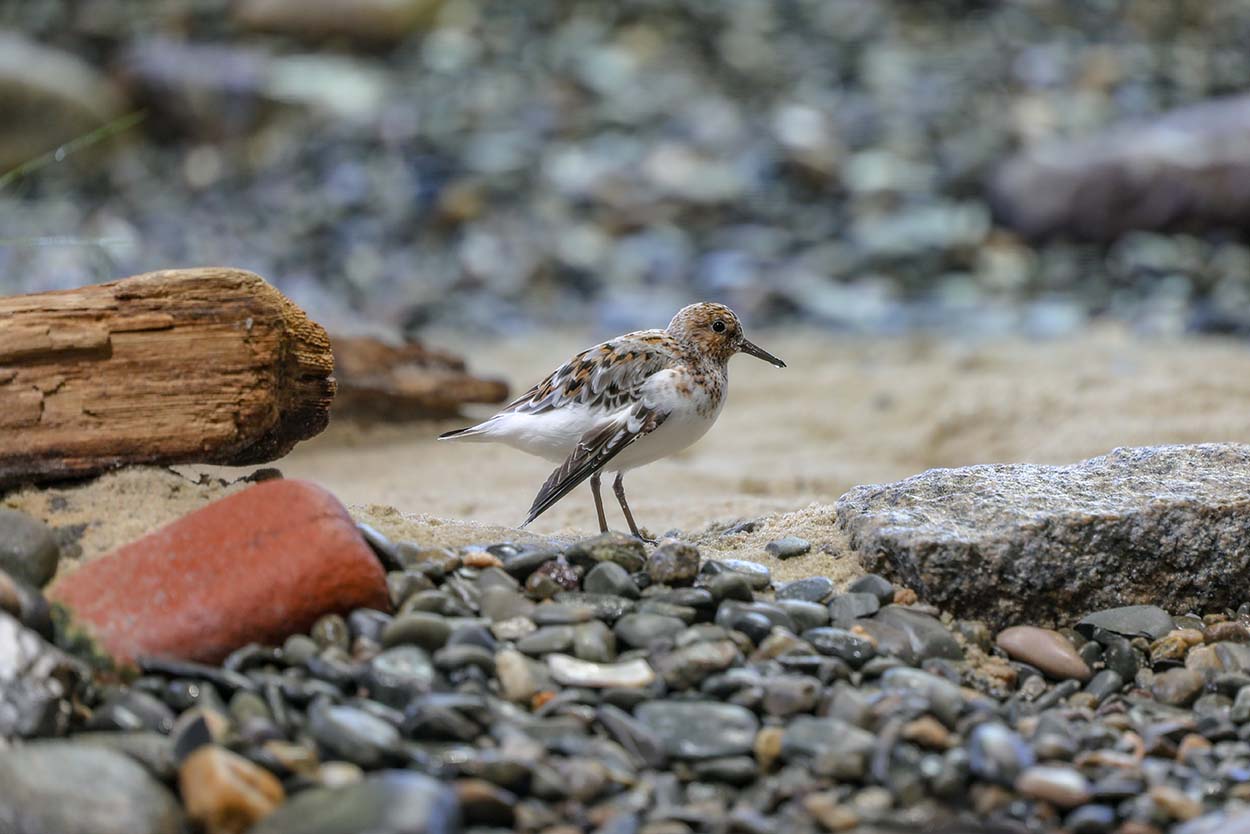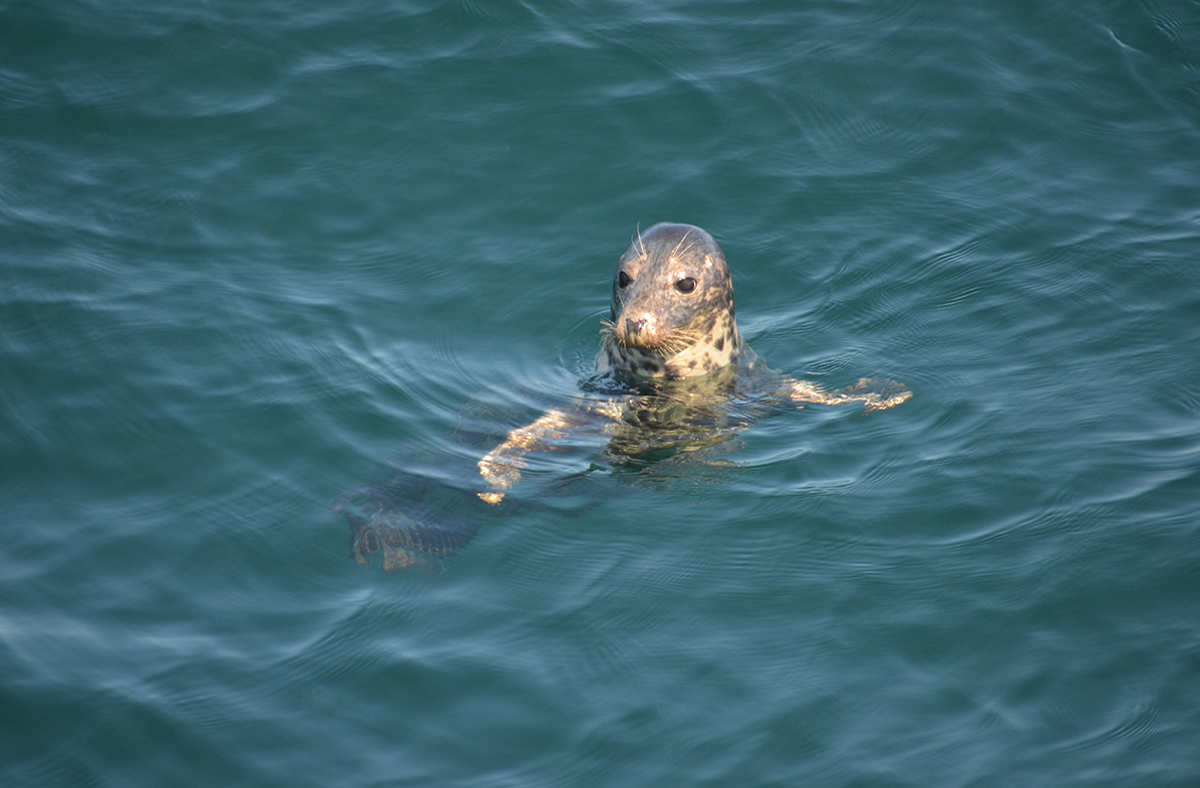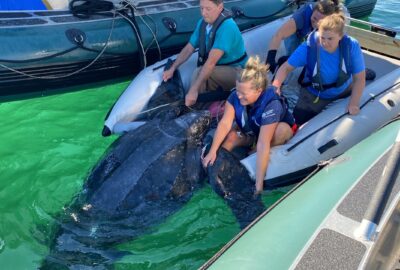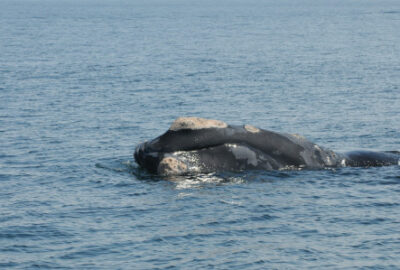The Aquarium will be closed to the public on Wednesday, April 2, for an internal staff event. Regular operating hours will resume on April 3.
Six Summertime Tips to Help Protect Marine Life
By New England Aquarium on Thursday, August 10, 2023


Summer is a great time of year to get outside and enjoy nature. When you’re out on the water, at the beach, or anywhere you might encounter wildlife, follow these tips to help protect marine animals and their habitats.

Respect animals and protected habitats
From shorebirds to seals, marine animals share a lot of our favorite summer spots. If you see a wild animal, no matter what kind, make sure to treat them with respect. Never approach an animal to touch, feed, or disturb them—and keep a safe distance when you’re taking photographs.
Along the beach, you might see protected sites for nesting birds, including endangered piping plovers. Stay out of restricted areas, even if you don’t see wildlife there, and keep on marked trails during nature walks and hikes. Also, remember to keep any pets leashed and away from wild animals.
Be mindful while you’re on the water
Seeing marine animals like whales or dolphins in the wild is exciting. It may be tempting to get closer if you spot marine life while you’re boating, but it’s important to keep your distance for the animals’—and your—safety. A distance of 100 yards away is recommended for most whales and 50 yards for seals, dolphins, and sea turtles. However, boaters are required to stay at least 500 yards away from North Atlantic right whales, which are critically endangered.
Never chase a marine animal by boat, and observe vessel speed recommendations in your area. Vessel strikes, even from recreational boats, can seriously injure marine life.
If you’re swimming, be observant of your surroundings, as marine animals can be along the surface or close to the surface of the water.
Report injured, stranded, or entangled animals to authorized responders
If you encounter an animal you think needs help, don’t attempt to intervene yourself. Instead, get in touch with the proper agency that can respond to an animal in distress.
The New England Aquarium’s Sea Turtle Rescue Team responds to sea turtle strandings along the Massachusetts coast north of Boston, as well as the New Hampshire coastline; Mass Audobon Wellfleet Bay Wildlife Sanctuary responds to strandings south of Boston and on the Cape and Islands. Learn how to get in touch with our team and how to report sightings of other stranded or injured animals, including marine mammals, on our Animal Rescue page.
To report an entangled sea turtle in New England, call the Center for Coastal Studies at 1-800-900-3622 or hail the US Coast Guard on VHF 16.

Use best practices for catch-and-release fishing
Choosing the right fishing gear can help improve the survival of fish that are returned to the water after being caught. Circle hooks and barbless hooks can be easier to remove, minimizing injury to the fish. If you are new to fishing, ask for help removing the hook—it’s safer for you and the fish.
Return the fish to the water as quickly as possible. Avoid touching the fish’s eyes and gills and handle it gently, supporting its weight. When releasing a fish, hold it into the current until it’s revived and can swim freely.
Help reduce waste in waterways
Litter and plastic waste pose a significant hazard to marine life. Plastics that make their way into waterways and the ocean are often ingested by marine animals, including sea turtles and shorebirds, that mistake trash for a food source. Plastics can also entangle animals or inhibit their ability to eat or drink.
You can help care for natural spaces by not leaving any waste behind at campsites, parks, and beaches and opting for reusable items over disposables. You can also pick up any trash you see, if you find it’s safe to do so!
Watch out for wildlife in the road
In late spring and summer, turtles are on the move looking for food and places to nest. During that time, you might just see a turtle trying to cross the road, especially if you’re driving near wetlands. If that happens, most importantly, be safe. If it’s possible to pull over to assist the turtle, move it off the road to a location in the direction it was facing. Don’t take a turtle home or try to relocate the turtle far from where you saw it! You can also report busy turtle crossings or injured turtles to MassWildlife.




